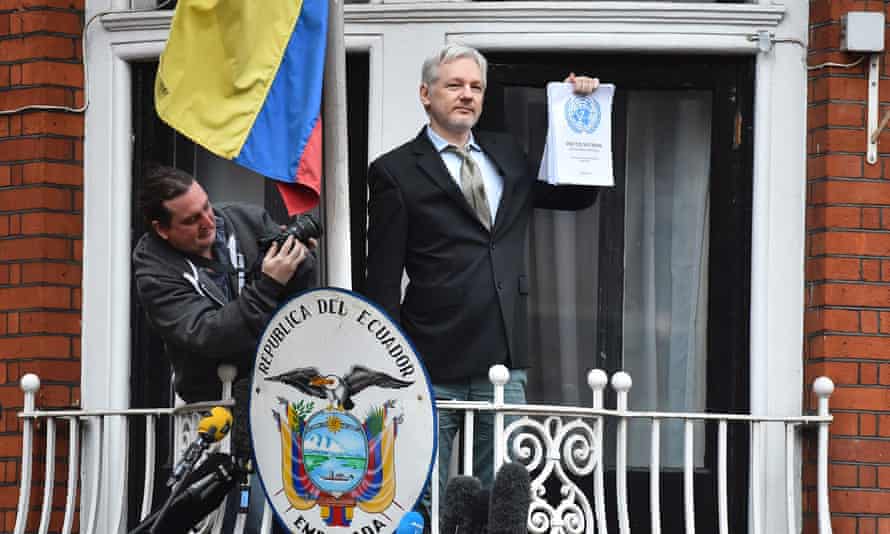RIO DE JANEIRO, BRAZIL – Carlos Poveda, the lawyer of WikiLeaks founder Julian Assange, said on Tuesday, July 27, that he will file legal action against the decision by a lower court to withdraw his client’s Ecuadorian nationality, granted in 2017.
Poveda said that last week they had an oral hearing in which “they indicated that the revocation of nationality was accepted,” but clarified that “that resolution is not firm because you can still put appeals before the National Court.”
The lawyer pointed out that the revocation of the nationality had been requested by the Ministry of Foreign Affairs and the Ecuadorian Attorney General’s Office under the argument “that administrative and regulatory formalities had been ignored.”
Among them were charges that Assange “did not live in the country, that he did not have resources to subsist and that some formalities of payment of tariffs had been ignored,” he enumerated.
After almost seven years of asylum in the Ecuadorian Embassy in London, in 2019, the Ecuadorian government of then-President Lenín Moreno put an end to that status for Assange, and the British courts arrested the Australian.

Immediately, the Ecuadorian Ministry of Foreign Affairs determined that the granting of nationality to Assange constituted a “harmful administrative act” and suspended its effects.
Poveda indicated that before the same District Court of Administrative Disputes issued the resolution last week, he would present “horizontal appeals” for clarification and extension in the next three days.
Once that is resolved, he will present the cassation appeal “under the argument that he was not allowed the right to defense, that it was based on evidence lacking legitimacy, and that, basically, Mr. Assange was not even allowed to appear. Absolutely everything was denied,” he stressed.
The Foreign Ministry assesses that “this is a pronouncement of a court that has acted independently and followed due process in a case that took place in the previous government and that was raised by the previous government itself,” said the director of Communication Eduardo Durán.
The WikiLeaks founder has spent the last decade fighting for his freedom in the United Kingdom, either in asylum in the Ecuadorian Embassy in London or from prison.

